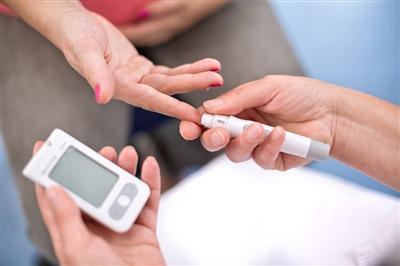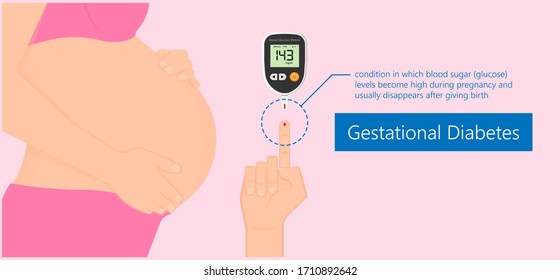Gestational Diabetes

Gestational diabetes means that your blood sugar levels are too high during pregnancy
Only pregnant women are at risk for gestational diabetes. In order to counter these extremely high blood sugar levels, the developing baby's developing pancreatic pancreas will be working harder to make more insulin for glucose to fuel the baby.
Gestational diabetes can occur before, during or after your pregnancy. If it occurs in your first trimester, you may not have developed any symptoms until you deliver. Even if you do, it will only go away when you give birth to your baby.
Gestational diabetes may be more common in diabetic women and causes higher blood sugar levels during pregnancy. It is very common for mothers who have gestational diabetes to experience frequent urination, especially in the evening. This is usually a sign that your blood sugar levels are rising.
Gestational diabetes can also cause nausea, vomiting and diarrhea. You may also notice your hair or skin becoming dry. You may also have problems sleeping because your body has too much glucose and cannot get rid of it.
Gestational diabetes is treatable with proper diet and exercise. It may be caused by lack of exercise or low blood sugar level. If you suspect that you are having gestational diabetes you should contact your doctor or health care provider right away.
When your doctor checks your baby's diet and you notice that his blood sugar level is too high, your doctor will monitor his blood glucose level. Your doctor will then recommend medication to lower his blood sugar level if necessary.
Gestational diabetics may be given insulin injections at the start of pregnancy to help control their glucose level. The doses given are smaller. The doctor may also give them to prevent the baby from starving to death during the first few weeks of your pregnancy. The baby's growth is also being monitored to avoid the baby from suffering from malnutrition.
Diabetes is a serious condition. But if you and your partner are careful about the foods you eat and the amount you take in, you can be safe and happy with your pregnancy. It is also important to stay active and fit.

Gestational diabetes can be managed by avoiding certain foods and drinks. Drinking plenty of water is a good way to reduce the risk of gestational diabetes. Drinking fruit juices and vegetables also help.
Gestational diabetes may also be prevented by maintaining a healthy weight. If you gain weight while you are pregnant, you should try to keep it down before and after your pregnancy. Regular exercise and weight loss programs are also very important.
Avoiding certain types of foods and beverages such as soft drinks and alcohol is also important. These foods are known to raise your blood sugar level.
Gestational diabetes can also be avoided by keeping a regular check up with your doctor. In some cases, your doctor may recommend the use of insulin shots to help lower your baby's glucose level. Your doctor will also tell you about medicines that can reduce the level of glucose in your bloodstream. If you want to avoid taking any medications during pregnancy you should discuss this with your doctor.
Gestational diabetes can be avoided by eating healthier foods and drinking lots of water. If you follow the advice of your doctor, you can prevent gestational diabetes for a long time.
However, there are some cases where diabetic babies are more likely to develop the condition
If your baby is diagnosed with gestational diabetes, he will be put on a low-sugar diet and may be given insulin to help regulate the level of his blood sugar.
Gestational diabetes can lead to some serious complications. This includes heart disease and blindness. However, most of the time these complications are temporary.
Gestational diabetes can be avoided by following the guidelines that your doctor provides you with. And by exercising regularly. You should try to avoid all types of medication and foods that cause high blood sugar levels and those that contain caffeine, sugars, and carbohydrates.